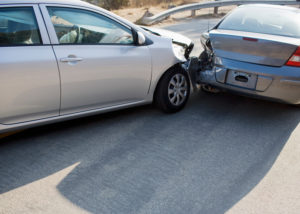What Is the Car Accident Statute of Limitations in California?
 If you fail to meet the car accident statute of limitations, you may forfeit your claim. In order to prevent this from happening, it’s important to work with an experienced accident attorney who can make sure you meet all necessary deadlines.
If you fail to meet the car accident statute of limitations, you may forfeit your claim. In order to prevent this from happening, it’s important to work with an experienced accident attorney who can make sure you meet all necessary deadlines.
A “statute of limitations” is, simply put, a deadline for when you must file a lawsuit. Deadlines vary depending on the type of case you’re failing. So what about car accidents? Contact Russell & Lazarus APC today to learn more.
What Is the Car Accident Statute of Limitations in California?
Each state sets its own statute of limitations for personal injury cases. In California, the Code of Civil Procedure 335.1 establishes a car accident statute of limitations of two years. This applies to all cases where injury or death is caused by a wrongful act or negligence of another.
Two years may sound like a long time; however, there are many things that need to be done before you file a lawsuit. You will need to gather evidence, including witness statements. Some witnesses can be difficult to contact, and some refuse to discuss conflicts. You will also need to collect medical records, which can take weeks or months. Moreover, you will want to discuss the situation with the insurance company. Negotiations can take months as well. It may be a long time before you file a lawsuit, so you should get started with the process soon after the wreck.
When Does the Statute of Limitations Start?
In order to determine your deadline to file a lawsuit, you will want to determine when your “clock” started running on the car accident statute of limitations. There is a difference between whether someone was injured or someone died in the car accident. If a person suffered injuries, including another driver, passengers, bicycle rider, pedestrian, or others, then the lawsuit must be filed within two years of the date of the accident. However, if someone died in the accident, then the clock starts running on the date the person dies. In both cases, you have two years from that date to file a lawsuit.
Statute of Limitations for Property Damage
The previous discussion about statute of limitations addresses situations where a person is injured or dies. But if you only have a property damage claim for vehicle damage, then you have three years to file a lawsuit.
You may not think you need an attorney for a case involving only property damage, but in reality, the other person’s insurance company will likely try to offer you less than you deserve in this type of case as well. You may not get enough money to cover all of your damages or to replace your car, if necessary.
What If the Statute of Limitations Has Run Out?
If you fail to file a lawsuit prior to the last date of your car accident statue of limitations, then a court will likely refuse to hear your case. You will not have any legal remedy. In these cases, insurance companies often refuse to approve claims and will not pay out any settlement. If you have questions about your statute of limitations on a case, you should immediately contact an attorney.
Filing a Lawsuit After a Car Accident
You may wonder why you would want to file a lawsuit after a car accident. And naturally, you would probably prefer to resolve everything quickly and easily. However, insurance companies are often more motivated when you have the option of filing a lawsuit. The insurance company will likely make you a lowball offer that will not cover your losses. You may have to file a lawsuit or threaten one in order to get the insurance company to make a reasonable settlement offer. However, if they refuse to make a reasonable offer, you may have to file a lawsuit and take the insurance company to court.
Call an Orange County Attorney to Address a Car Accident Statute of Limitations
Avoid costly mistakes by speaking to a car accident attorney who can help you meet deadlines and protect your rights. Call Russell & Lazarus APC today in Newport Beach, Long Beach, or Riverside.
